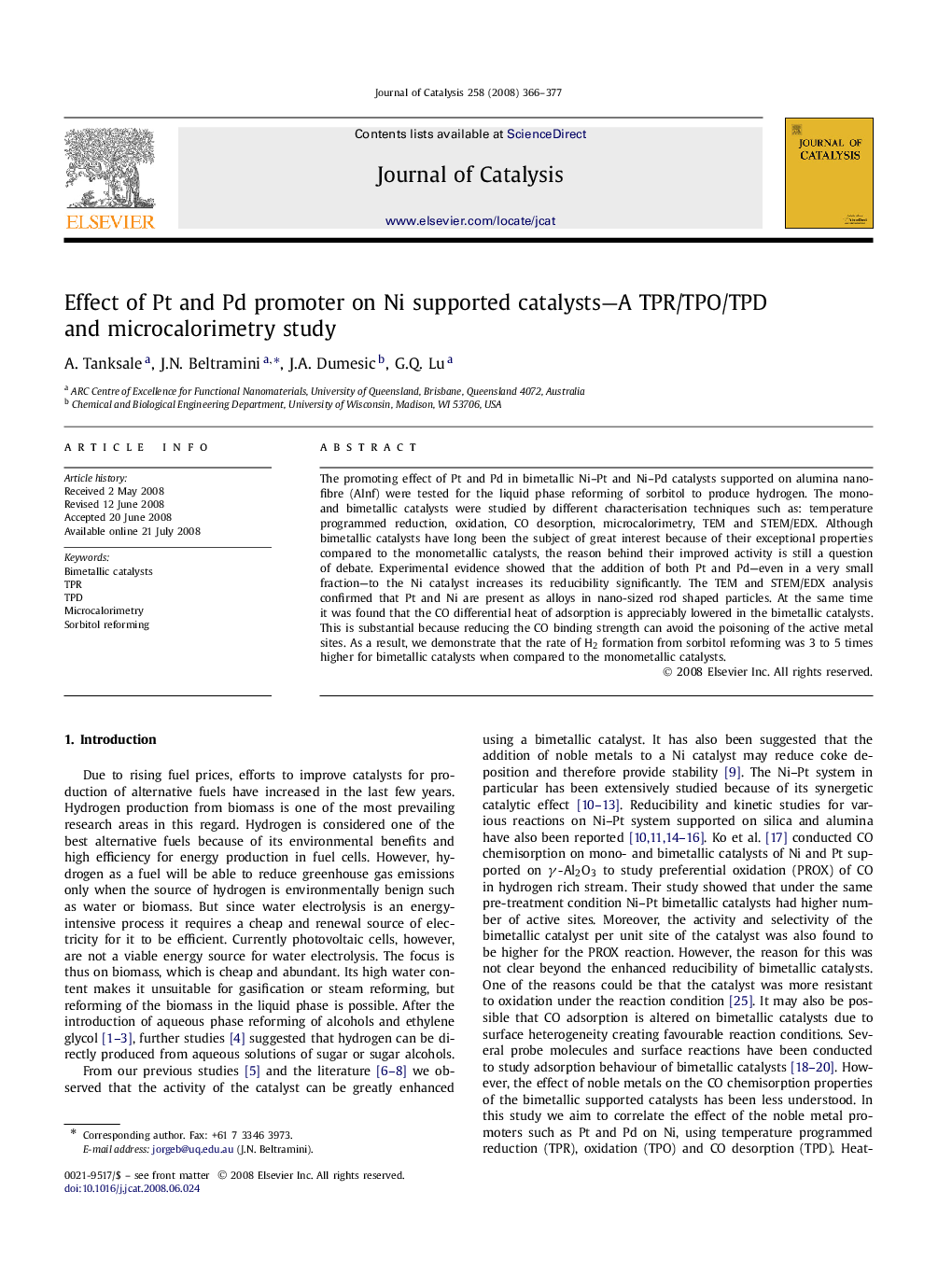| Article ID | Journal | Published Year | Pages | File Type |
|---|---|---|---|---|
| 62345 | Journal of Catalysis | 2008 | 12 Pages |
The promoting effect of Pt and Pd in bimetallic Ni–Pt and Ni–Pd catalysts supported on alumina nano-fibre (Alnf) were tested for the liquid phase reforming of sorbitol to produce hydrogen. The mono- and bimetallic catalysts were studied by different characterisation techniques such as: temperature programmed reduction, oxidation, CO desorption, microcalorimetry, TEM and STEM/EDX. Although bimetallic catalysts have long been the subject of great interest because of their exceptional properties compared to the monometallic catalysts, the reason behind their improved activity is still a question of debate. Experimental evidence showed that the addition of both Pt and Pd—even in a very small fraction—to the Ni catalyst increases its reducibility significantly. The TEM and STEM/EDX analysis confirmed that Pt and Ni are present as alloys in nano-sized rod shaped particles. At the same time it was found that the CO differential heat of adsorption is appreciably lowered in the bimetallic catalysts. This is substantial because reducing the CO binding strength can avoid the poisoning of the active metal sites. As a result, we demonstrate that the rate of H2 formation from sorbitol reforming was 3 to 5 times higher for bimetallic catalysts when compared to the monometallic catalysts.
